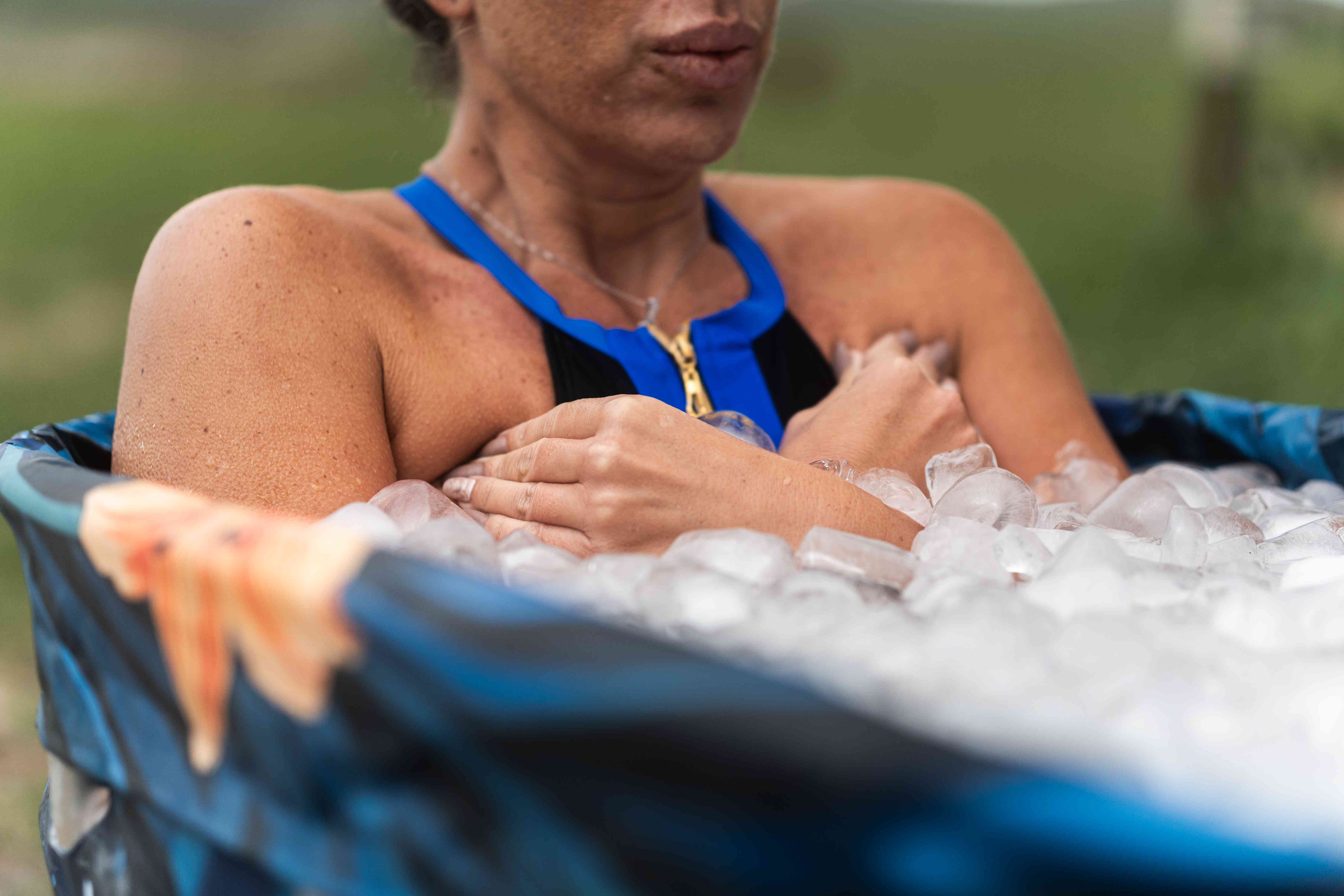Should You Take the Plunge? What a New Study Says About the Benefits of Icy-Water Immersion

People swear by the health benefits of cold-water immersion, but new research found that the science behind these claims is inconclusive

Ivan Rodriguez Alba / Getty Images
- People swear by the health benefits of cold-water immersion—polar plunges, cold showers, and ice baths—but a new study found that the science is inconclusive.
- While cold-water immersion may help with muscle soreness, immunity, and sleep, the evidence is time-dependent and slim, researchers said.
- Experts said it’s still safe to try cold-water immersion, but it’s best to start slow with warmer water and short time periods.
Polar plunges and ice baths have become trendy ways to aid various ailments, but a new analysis suggests that the benefits of submerging yourself in freezing water aren’t entirely clear-cut.
Researchers reviewed past papers on cold-water immersion and health for their study, published in the journal PLoS One. They found that these icy practices may have some benefits, but many questions remain.
“Cold-water immersion has exploded in popularity, with people promoting it as a wellness hack for everything from reducing anxiety to boosting immunity,” Tara Cain, a research assistant at the University of South Australia and an author of the new report, told Health. “But when you take a closer look at the research, the evidence behind many of these claims is incomplete or inconsistent.”
Is Cold-Water Immersion Good for You?
Cain and her colleagues wanted to look at how cold-water immersion affects the average person, given that research has largely focused on high-level athletes specifically.
“A lot of existing research on cold-water immersion has focused on athletes and sports recovery, showing that it can help with muscle soreness and fatigue after intense exercise,” she said. “However, when it comes to broader health benefits, the evidence is much more limited.”
The authors conducted a systematic review and meta-analysis of 11 studies on cold-water immersion. The studies included 3,177 participants who participated in various types of immersion, including ice baths, cold showers, and cold plunges.
To be included in the meta-study, the water involved had to be 59 degrees or lower and the immersion at least 30 seconds long and chest deep, Cain noted. “Things like just dipping your feet or face weren’t included,” she said.
The team found that cold-water immersion causes an immediate increase in inflammation. “At first glance this seems contradictory, as we know that ice baths are regularly used by elite athletes to reduce inflammation and muscle soreness after exercise,” co-author Ben Singh, PhD, a research fellow at the University of South Australia, said in a press release.
“The immediate spike in inflammation is the body’s reaction to the cold as a stressor. It helps the body adapt and recover and is similar to how exercise causes muscle damage before making muscles stronger, which is why athletes use it despite the short-term increase.”
Cold-water immersion wasn’t linked to immediate stress reduction—but it was associated with a drop in stress levels 12 hours later.
Additionally, there “was no immediate immune boost, but one study found that people who took cold showers regularly took less time off work due to illness,” Cain said.
Notably, the team found that cold-water immersion may lead to higher quality of life and improved sleep. “A key takeaway was that cold-water immersion effects seem to be time-dependent, meaning what happens immediately after immersion might be different from the long-term effects,” Cain said.
The report was limited in a few crucial ways. For example, some of the studies in the review looked at how single immersion affected participants, limiting the ability to conclude the long-term effects of cold-water immersion. Only one of the studies included female participants, which means the results may not be universally applicable. Some of the studies also had small sample sizes.
Ultimately, the authors concluded that more research is needed to know what happens to the body during cold-water immersion. “While many people swear by [cold-water immersion], the scientific evidence is still developing,” Cain said.
How to Take a Safe Plunge
If you’re curious about the effects of cold-water immersion, experts said it’s safe to experiment with the practice if you don’t have certain pre-existing health conditions.
Anyone with a heart condition, history of stroke or seizure, or a respiratory condition that can cause difficulty breathing probably shouldn’t participate, Christopher Gold, DO, an internal medicine physician at the Mount Sinai Health System, told Health. If you have a condition that affects your circulatory system, such as Raynaud’s, you should also speak with a healthcare provider before trying this.
Experts suggest that people trying cold-water immersion start small. “For something like this, more isn’t always better,” Timothy Miller, MD, an orthopedic surgeon and sports medicine physician at Ohio State University Wexner Medical Center, told Health.
Your best bet may be to see how you tolerate a few seconds of cold water after a shower, Gold said. You can work your way up bit by bit each day, going from 10 seconds to 15, then 20, etc.
Miller said you should never try cold-water immersion in water below 40°F. “You want to start with the 50-to 55-degree range,” he said.
As you work your way up, it’s safest to limit sessions to the 10-minute mark, Gold said.
When you start experimenting with cold-water immersion, Miller added, it’s also a good idea to make sure someone else is nearby and knows what you’re doing. That way, they can help in case there’s a problem.
This story originally appeared on: Health News - Author:Maggie O'Neill


















